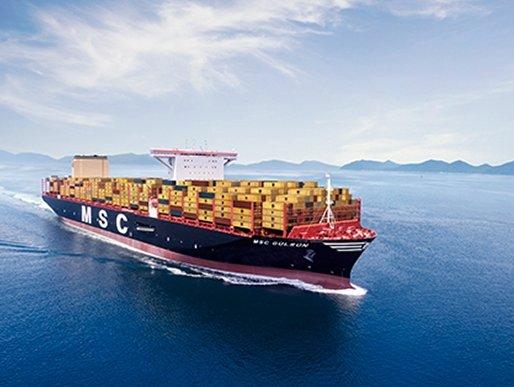
Citing environmental concerns, MSC says it will not use the Northern Sea route
Oct 21, 2019: Mediterranean Shipping Company (MSC) has joined the growing list of container carriers’ ruling out the Northern Sea route. MSC through a statement said that surge in container shipping traffic in the Arctic could damage air quality and endanger the biodiversity of untouched marine habitats. The carrier has decided not to use the […]

Oct 21, 2019: Mediterranean Shipping Company (MSC) has joined the growing list of container carriers’ ruling out the Northern Sea route.
MSC through a statement said that surge in container shipping traffic in the Arctic could damage air quality and endanger the biodiversity of untouched marine habitats.
The carrier has decided not to use the short cut route between northern Europe and Asia citing ‘environmental impact’ as the reason though the route is viable for the carrier.
MSC is convinced that the 21 million containers moved each year for its customers can be transported around the world without passing through this Arctic corridor.
The Northern Sea Route lies entirely in Arctic waters and has been trialed by other shipping lines seeking to take advantage of melting ice from global warming.
“As a responsible company with a longstanding nautical heritage and passion for the sea, MSC finds the disappearance of Arctic ice to be profoundly disturbing. Every drop in the oceans is precious and our industry should focus its efforts on limiting environmental emissions and protecting the marine environment across existing trade routes,” said Diego Aponte, president & CEO, MSC Group.
Strategic approach to sustainability
The Geneva-based company https://assaultvictimlawyer.com/buy-cialis/ said that it had completed a program to retrofit more than 250 ships in its existing fleet with the latest green technologies, cutting about 2 million tonnes of CO2 emissions each year.
Adding to it, the company said that its latest ultra-large container vessels (ULCVs) have the lowest carbon footprint by design, at 7.49 grams of CO2 emissions to move one tonne of cargo one nautical mile.
Also, it informed that it is on a well-defined pathway to meet the 2030 IMO level of ambition for CO2 emissions intensity reduction.
“The great challenge which remains for container shipping this century is how to decarbonise and meet the UN IMO’s future emissions goals beyond 2030. While we are fully supporting these more distant targets, this will not be achievable without some major breakthroughs in fuel and propulsion technologies,” said Bud Darr, executive vice president, Maritime Policy & Government Affairs, MSC Group.
MSC is actively studying the potential of using new alternative fuel sources, such as biofuel blends, hydrogen fuel cells, complementary battery power and, potentially, wind and solar.
CMA CGM, in August, became the first container shipping company to decide that its fleet will not use the Northern Sea route as ‘it will represent a significant danger to the unique natural ecosystems of this part of the world’.
The French company found LNG as the best possible solution to significantly reduce the environmental footprint of maritime transport.
According to CMA CGM, the use of LNG reduces: emissions of sulphur and fine particles by 99%; nitrogen oxides emissions by 85% and carbon dioxide emissions by up to 20%.

